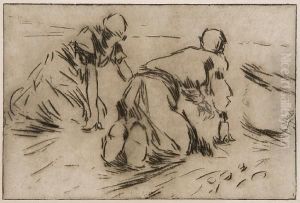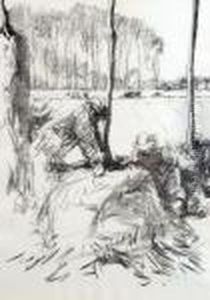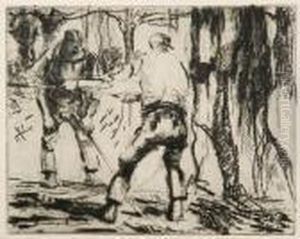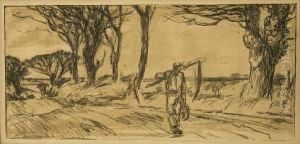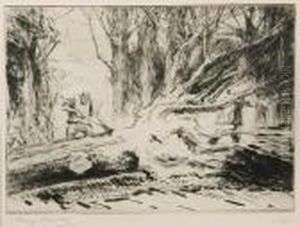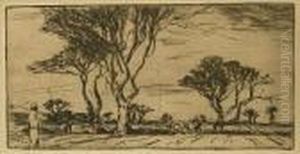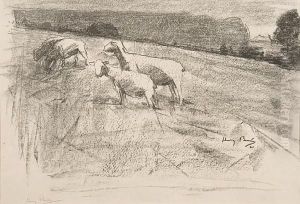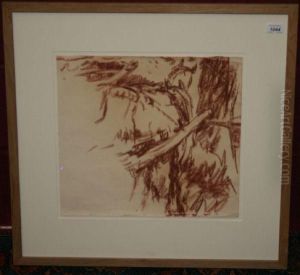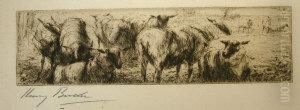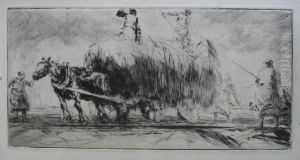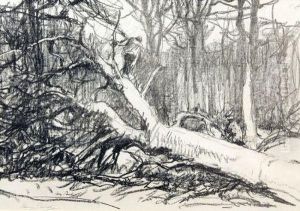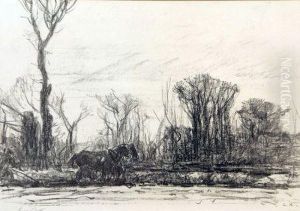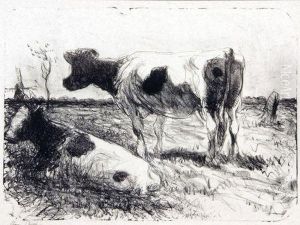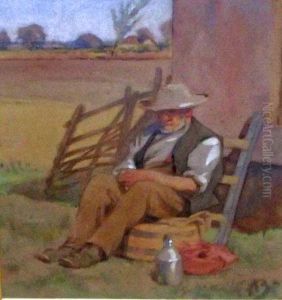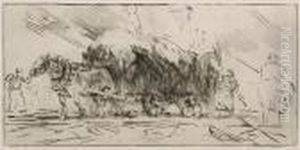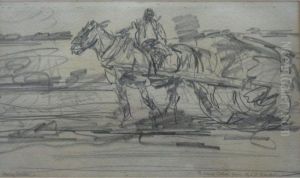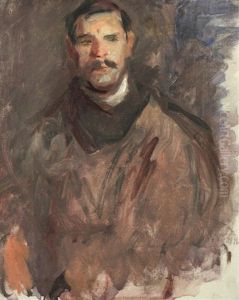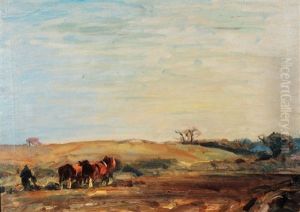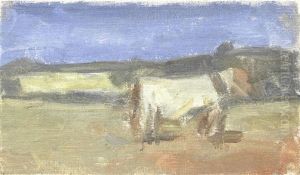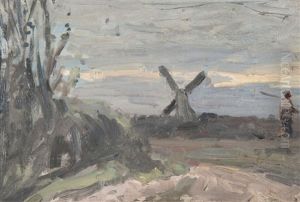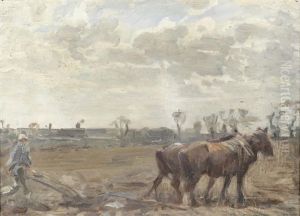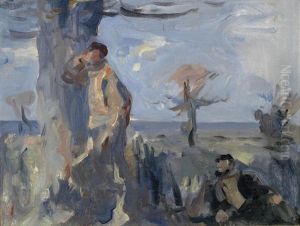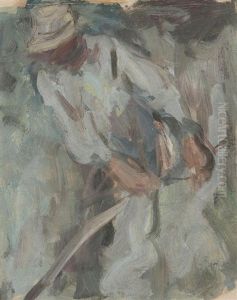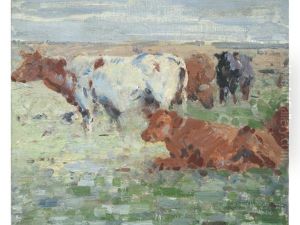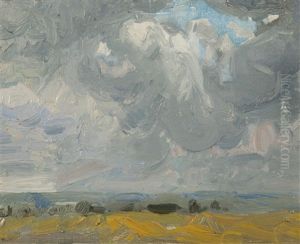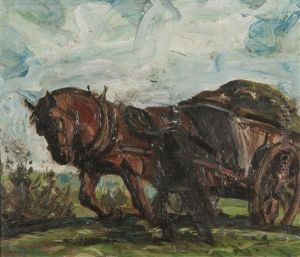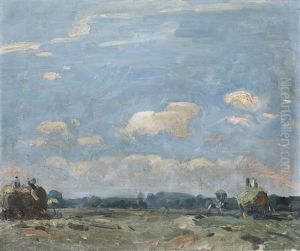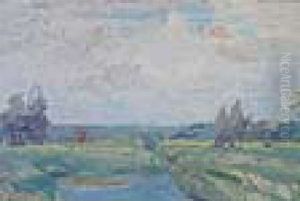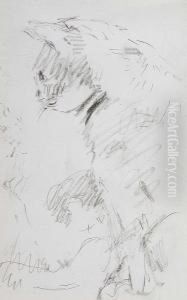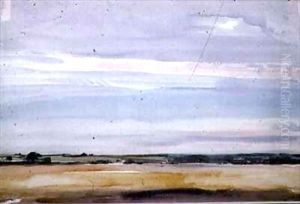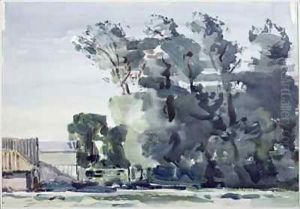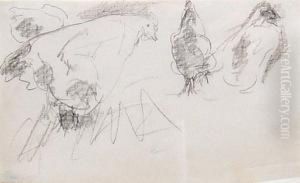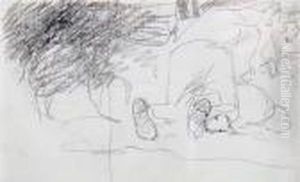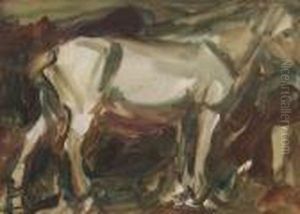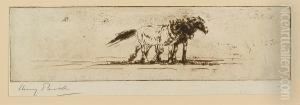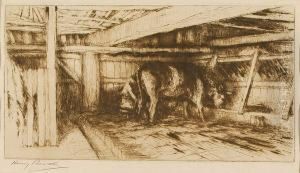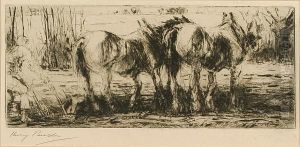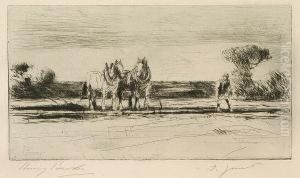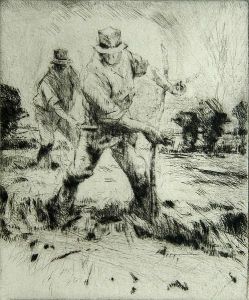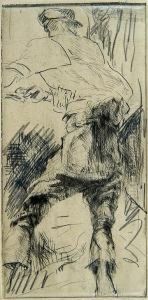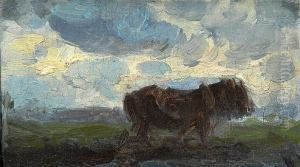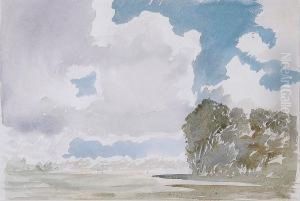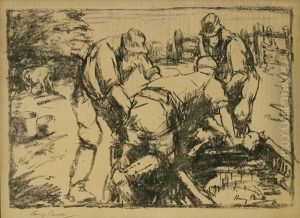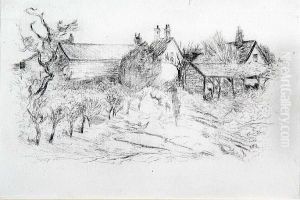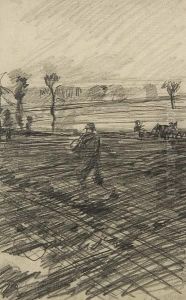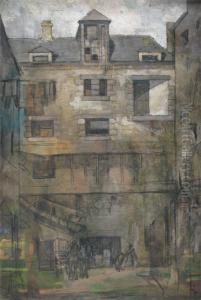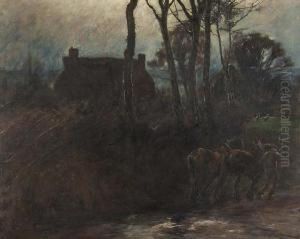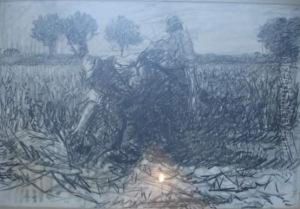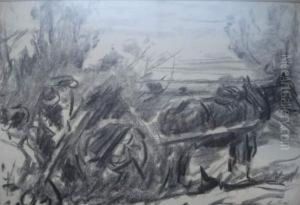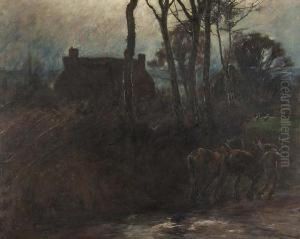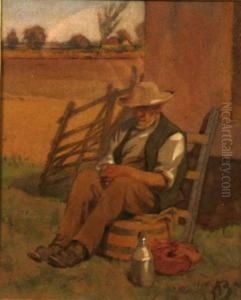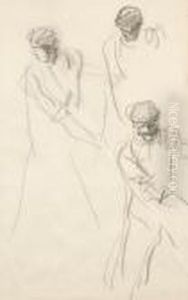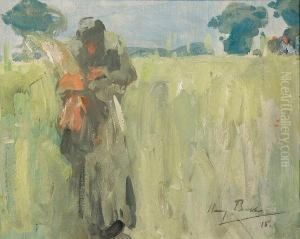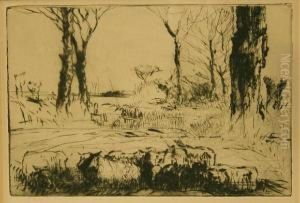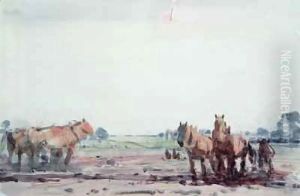Harry Becker Paintings
Harry Becker was an English painter, draughtsman, and printmaker known for his naturalistic and dynamic style, particularly in depicting rural life and landscapes. Born on May 18, 1865, in Colchester, Essex, Becker grew up in a culturally rich environment that fostered his interest in the arts. He studied at the Antwerp Academy and later in Paris, where he was influenced by the Impressionist movement and the works of artists such as Vincent van Gogh and Édouard Manet.
Becker's early career was marked by his move to London, where he worked as an illustrator for magazines and newspapers, capturing the vibrant life of the city with a keen eye for detail and movement. His illustrations were characterized by a loose, expressive line that would become a hallmark of his later work.
In 1913, seeking a quieter life and new inspiration, Becker relocated to the rural village of Wenhaston, Suffolk. The change of scenery proved to be a turning point in his career, as he became deeply engaged with the local landscape and the people who inhabited it. Becker's work from this period shows a strong connection to the land and an empathy for the laborers and animals he observed. His paintings and drawings often featured scenes of farm work, such as plowing, harvesting, and tending to livestock, rendered with vigorous brushwork and a muted, earthy palette.
Despite his talent, Becker never achieved significant commercial success during his lifetime. He exhibited with the Ipswich Art Club and had a solo exhibition in London in 1925, but his work was often overlooked by the mainstream art world. It was only after his death in Colchester on August 18, 1928, that Becker's contribution to British art began to be fully recognized.
Today, Harry Becker is appreciated for his unique ability to capture the essence of rural life and for his mastery of form and atmosphere. His work is held in various public collections, including the British Museum, and continues to be celebrated for its authenticity and artistic vitality.
